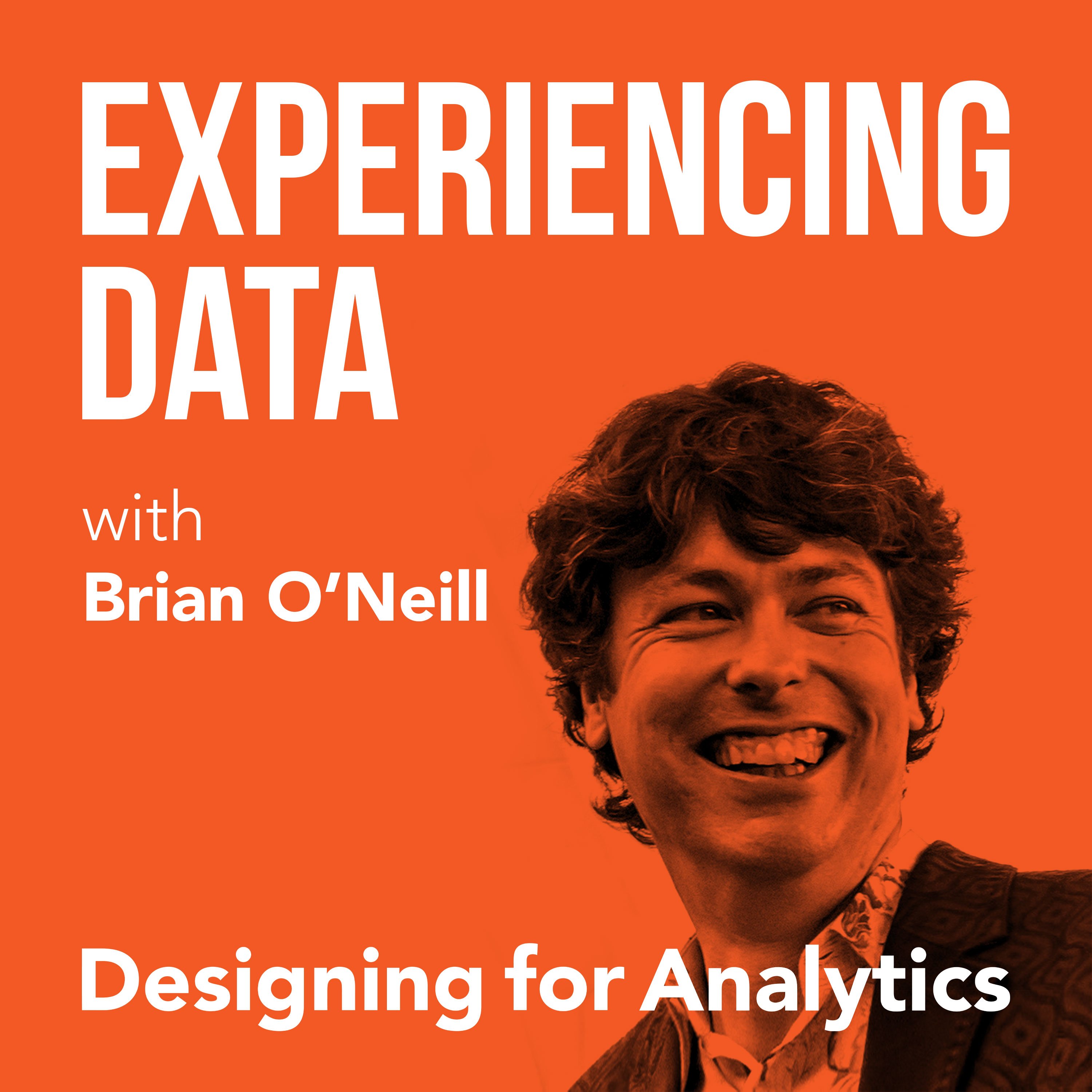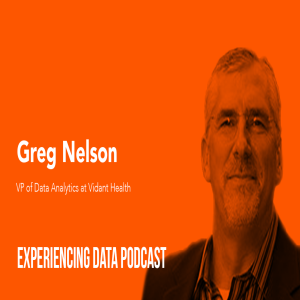

152.1K
Downloads
182
Episodes
Is the value of your enterprise analytics SAAS or AI product not obvious through it’s UI/UX? Got the data and ML models right...but user adoption of your dashboards and UI isn’t what you hoped it would be?
While it is easier than ever to create AI and analytics solutions from a technology perspective, do you find as a founder or product leader that getting users to use and buyers to buy seems harder than it should be?
If you lead an internal enterprise data team, have you heard that a ”data product” approach can help—but you’re concerned it’s all hype?
My name is Brian T. O’Neill, and on Experiencing Data—one of the top 2% of podcasts in the world—I share the stories of leaders who are leveraging product and UX design to make SAAS analytics, AI applications, and internal data products indispensable to their customers. After all, you can’t create business value with data if the humans in the loop can’t or won’t use your solutions.
Every 2 weeks, I release interviews with experts and impressive people I’ve met who are doing interesting work at the intersection of enterprise software product management, UX design, AI and analytics—work that you need to hear about and from whom I hope you can borrow strategies.
I also occasionally record solo episodes on applying UI/UX design strategies to data products—so you and your team can unlock financial value by making your users’ and customers’ lives better.
Hashtag: #ExperiencingData.
JOIN MY INSIGHTS LIST FOR 1-PAGE EPISODE SUMMARIES, TRANSCRIPTS, AND FREE UX STRATEGY TIPS
https://designingforanalytics.com/ed
ABOUT THE HOST, BRIAN T. O’NEILL:
https://designingforanalytics.com/bio/
Episodes

Tuesday Feb 25, 2020
Tuesday Feb 25, 2020
 Greg Nelson is VP of data analytics at Vidant Health, as well as an adjunct faculty member at Duke University. He is also the author of the “Analytics Lifecycle Toolkit,” which is a manual for integrating data management technologies. A data evangelist with over 20 years of experience in analytics and advisory, Nelson is widely known for his human-centered approach to analytics. In this episode, Greg and I explore what makes a data product or decision support application indispensable, specifically in the complex world of healthcare. In our chat, we covered:
Greg Nelson is VP of data analytics at Vidant Health, as well as an adjunct faculty member at Duke University. He is also the author of the “Analytics Lifecycle Toolkit,” which is a manual for integrating data management technologies. A data evangelist with over 20 years of experience in analytics and advisory, Nelson is widely known for his human-centered approach to analytics. In this episode, Greg and I explore what makes a data product or decision support application indispensable, specifically in the complex world of healthcare. In our chat, we covered:
- Seeing through the noise and identifying what really matters when designing data products
- The type of empathy training Greg and his COO are rolling out to help technical data teams produce more useful data products
- The role of data analytics product management and why this is a strategic skillset at Vidant
- The AI Playbook Greg uses at Vidant Health and their risk-based approach to assessing how they will validate the quality of a data product
- The process Greg uses to test and handle algorithmic bias and how this is linked to credibility in the data products they produce
- How exactly design thinking helps Greg’s team achieve better results, trust and credibility
- How Greg aligns workflows, processes, and best practice protocols when developing predictive models
Resources and Links:
Vidant Health Analytics Lifecycle Toolkit Greg Nelson’s article “Bias in Artificial Intelligence” Greg Nelson on LinkedIn Twitter: @GregorySNelson Video: Tuning a card deck for human-centered co-design of Learning Analytics
Quotes from Today's Episode
“We'd rather do fewer things and do them well than do lots of things and fail.”— Greg
“In a world of limited resources, our job is to make sure we're actually building the things that matter and that will get used. Product management focuses the light on use case-centered approaches and design thinking to actually come up with and craft the right data products that start with empathy.”— Greg
“I talk a lot about whole-brain thinking and whole-problem thinking. And when we understand the whole problem, the whole ‘why’ about someone's job, we recognize pretty quickly why Apple was so successful with their initial iPod.”— Greg
“The technical people have to get better [...] at extracting needs in a way that is understandable, interpretable, and really actionable, from a technology perspective. It's like teaching someone a language they never knew they needed. There's a lot of resistance to it.” — Greg
“I think deep down inside, the smart executive knows that you don’t bat .900 when you're doing innovation.” — Brian
“We can use design thinking to help us fail a little bit earlier, and to know what we learned from it, and then push it forward so that people understand why this is not working. And then you can factor what you learned into the next pass.” — Brian
“If there's one thing that I've heard from most of the leaders in the data and analytics space, with regards particularly to data scientists, it’s [the importance of] finding this “other” missing skill set, which is not the technical skillset. It's understanding the human behavioral piece and really being able to connect the fact that your technical work does have this soft skill stuff.” — Brian
“At the end of the day, I tell people our mission is to deliver data that people can trust in a way that's usable and actionable, built on a foundation of data literacy and dexterity. That trust in the first part of our core mission is essential.”— Greg
No comments yet. Be the first to say something!